Featured Image Background: Pixabay User Denis
My new year resolution this year was to try to limit my personal consumption to get closer to “Zero Waste”
For those of you who don’t know the term, Zero Waste refers to a movement whereby one tries to attain a lifestyle which produces no waste. In product design it refers to the intentional design of the full lifecycle of products to be reused and close the production loop, it’s called “cradle-to-cradle.” Check out this really interesting Wiki article on the topics.
For me specifically, it meant to become more conscious of what I consumed and the trash it produced, or left behind. I was inspired by an article I read about Lauren Singer from Trash is for Tossers talking about how she leads a perfectly “normal” life in New York city and hasn’t taken out the trash in 2 years. That and the fact that in the DR we had to burn our trash, making me really aware of all our excess.
I’m always preaching about taking responsibility for our actions as individuals, things we often project onto society as being the culprit. Yet here it was, so obvious, in my face, and right before New Year’s.
[Tweet “It was so simple: Just stop making trash!”]
Or so it seemed. Indeed, there are some people out there, like Lauren and Bea Johnson, whom claim they produce NO trash,
While there are plenty of haters and nitpickers out there who’d like to show how they can’t possibly be ZERO waste, I reply: “Well if they aren’t completely ZERO, they sure are closer to that goal than I am!”
And so it became my goal this 2015 to start taking count of my trash and reduce it, as much as I could, where I could.
Gabriel jumped on the bandwagon and loved the idea.
Are we now totally zero waste?
NO!
Not even close. In fact, we produce a lot more trash than we realized. But hey, I didn’t quit smoking cold turkey, and some argue we as a society are addicted to plastic:
https://www.youtube.com/watch?v=4wx5rjcxDYY
The first step to kicking a habit is to admit you have a problem. I thought I was doing swell, until we started counting.
So since January 1st 2015, we’ve been counting our trash and slowly making reasonable changes as fast as we can.
Life on the road poses its own set of challenges, but we’re taking it in stride, knowing that everyday that goes by gets us closer to doing our part for the trash problem: taking personal responsibility for our actions and fixing our errors.
Zero Waste Travel.
Let’s talk first about the giant elephant in the room:
Gasoline.
“HOW!” you say “can you possibly think of yourself as Zero Waste if you’re burning gasoline to get from point A to point B?”
Well, as it turns out, the average non-traveling American drives a whopping 12,000 miles a year, that’s about 540 gallons of gasoline. So far this year we’ve driven 1,415 miles.
While you’d think our gas milage, somewhere between 17 to 22 mpg (depending on traffic and load) is pretty terrible, consider the average American mpg is just 19.8!
If we drove all the way to the tip of chile before the end of the year (another 8,000 miles) we would still only be under 10,000 miles, which is still below the American average.
[Tweet “If we drove all the way to the tip of Chile we would burn less gas than the American average.”]
Hard to believe, I know! Yet the stats are there. We’re estimating our trip will take more like two years. Not to say that doing better than average is good enough, but simply to say that we’re not going to fret about our gas consumption yet.
We’d love to drive some flex-fuel, electric powered vehicle, or even better power our movements with our own poop, but the technology is not yet affordable for us to do so. Maybe soon! Meanwhile, we’re going to take the gasoline out of the equation (if only our credit cards statements decided to do the same) and focus on all the other stuff we CAN be doing right now.
In the end, choosing the #vanlife over backpacking through public transport allows us a lot more freedom to make other more sustainable changes, and we feel it balances out best this way.
The Basics
[Tweet “It’s simple in theory, reduce, reuse, recycle! Except our society LOVES disposable lifestyles!”]
From planned obsolescence to pre-packaged foods, it’s actually pretty difficult to take trash out of your life at first. It seems everywhere you look there’s something you just end up being unable to recycle and just have to throw away, and it’s even harder in countries where recycling is almost unheard of.
I quit smoking one cue at a time and we’re taking the same approach to the trash.
We bought all kinds of stuff in packaging before the new year that we are still using (like toothpaste) which we’ll end up having to throw out when we’re finished.
It’s ok, when we get to the end, we’ll replace it with something that doesn’t come in the same packaging. (like home made toothpaste) This gives us plenty of time to do our research on each topic and ease our way out of it. Bea has a really good basic tips section that’s great to get ideas from, and this is the kind of stuff we started with.
- We started buying more bulk foods or buying foods for their packaging (and their ingredients, we spend a lot longer inside a grocery store than most) We started keeping our food scraps out of the garbage bags and disposing of them where they could appropriately decompose instead.
- We got all our clothes from the thrift store, for budget as well as waste. This is really important as the textile industry is NOTORIOUS for its pollutants.
- We reconsidered our use of cleaning products, both in the “bathroom” and the “kitchen” (which incidentally are the same room for us)
- Most importantly we started sorting and counting our trash, which allows us to see where our biggest issues are and address them first. There’s no point in canning toothpaste tubes right away if you’re only throwing one out every 6 months versus thousands of granola bar wrappers a month (guilty as charged, almost)
Travel Specific Challenges
What makes this a lot simpler for those of you reading from your fixed-location-dwellings is that a lot of the work has been cut out for us already by pioneers like Lauren and Bea.
Heck, there’s even an app that shows you where to buy bulk items.
So you can do your research once and adjust your habits accordingly, forever. We need to figure it all out again in every town! Also, you can compost, quite easily, even in a small apartment, and it’s becoming easier all the time.
Here’s a good start:

Some of our challenges include:
- Finding local markets (supermarkets often have the bad habit of keeping veggies in styrofoam)
- Finding local bulk food solutions
- Keeping a bulk food “pantry” in a living space the size of the average American bathroom.
- Finding a proper way to dispose of food scraps without a compost bin
- Finding an alternative hiking snack that isn’t individually packaged and yet won’t go bad on the hike
- Using rags, napkins, and cloths to wash up instead of disposables when we don’t have a laundry room or ample water.
- Finding recycling centers for our cans, plastics, cardboard, and paper.
- Finding a way to store our recyclables while awaiting a solution.
- Finding an alternative solution to toilet paper
- Dealing with van maintenance and repairs
If we didn’t have a van it would be even more challenging, having to rely mostly on eating out or hostel kitchens ill-equipped for zero-waste. Not to mention having to plan out meals perfectly, being unable to keep left-overs without a fridge.
Having said that, with proper planning, and a few collapsable containers, I’m sure it could be done with the right dedication.
Culture Shock
We get a lot of strange looks when we roll up to taco stands with our own plates and mugs and refuse straws or napkins.
The corner stores and groceries always insist on putting items in bags, even single items, so we’ve started bringing our own bags EVERYWHERE no matter what.
“No, it’s ok, thanks, I can put it in here” ::confused look::
While “developed” countries are often the biggest polluters, it’s often measured by CO2 emissions and due largely to industry. In Mexico, the Dominican Republic, and Central America we’ve seen a LOT of unnecessary plastic and styrofoam consumption, it just doesn’t seem to be part of the education, and while most of encounters involve a roll of the eyes and a “these silly gringos” sort of slightly confused expression, we like to think we’re raising awareness in these places if only just one tiny fraction of a percent at a time.

Image Source: Wall Street Journal
Why are you going through all this trouble? Who cares?
As surfers, this is the waste we are most emotionally connected to because we see it all the time, floating with us or washed up on the beach. It’s just impossible to ignore.
We’re not the only ones out there, there’s a whole movement out there called “surfers against sewage” and their beach-cleans campaign.
There’s even a guy out there who made his own board from trash, he calls himself the Plastic Soup Surfer, he shows you how to make your own and you should check out his story.

And while trying to clean up after the whole wide world is definitely honorable, for us, it’s become more important to stop preaching and instead lead by example. If everyone stopped making trash, we’d have a lot less crap to clean up.
Let’s be honest though,
[Tweet “Creating less waste while traveling also forces us to be healthier and thriftier.”] #TrueFact! and so there’s a lot in it for us as well.
Part of our mission and our blog
After a few months of really focusing on this it’s come to completely change the way we live, and more importantly the way we travel.
So to make a long story short, we’re going to make this a monthly thing on the blog.
You can follow our progress and our ZeroWasteJourney by checking out everything in our Zero Waste categories, or tuning in the first Friday of every month.
You can see how we did last month based on our facebook update,
And we’ll catch you up on all of the juicy details Friday May 1st!
We’re pretty much pioneering this as far as we know, so please feel free to join us with this challenge, leave comments, help us, or send us links that you think will be relevant!
In short, don’t just watch, please, get involved!
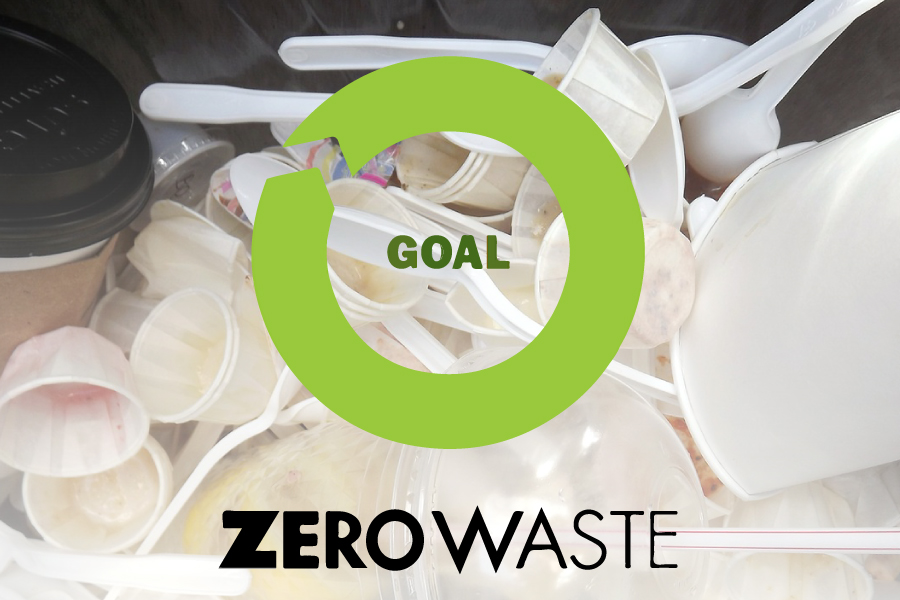
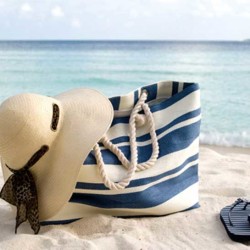

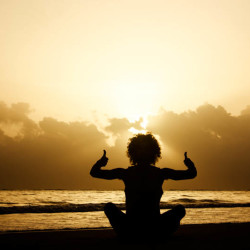



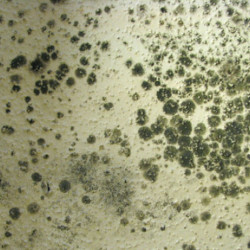
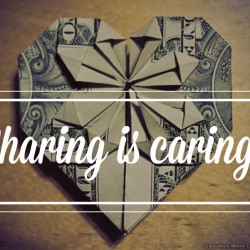
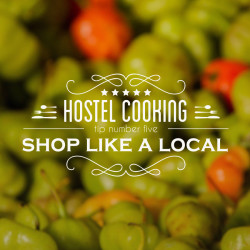
What I really despise is the fact that somehow one gets financially “punished” for trying to reduce waste. Where we live in Australia every household is forced to pay for trash removal, the smallest bin is so large that we put ours out every forth or fifth collection week (and then it’s usually only half full, 50% of which are weeds I don’t want to compost because their seeds don’t break down) – yet we have to pay the full charge! Most of the time our wasteful neighbours fill the empty space in our bin because theirs is overflowing…
Hey Juergen,
We’re hoping that the more people become conscious the more things will change. Maybe it’s wishful thinking, but in the meantime it’s quite the challenge!
keep up the waste free life :)